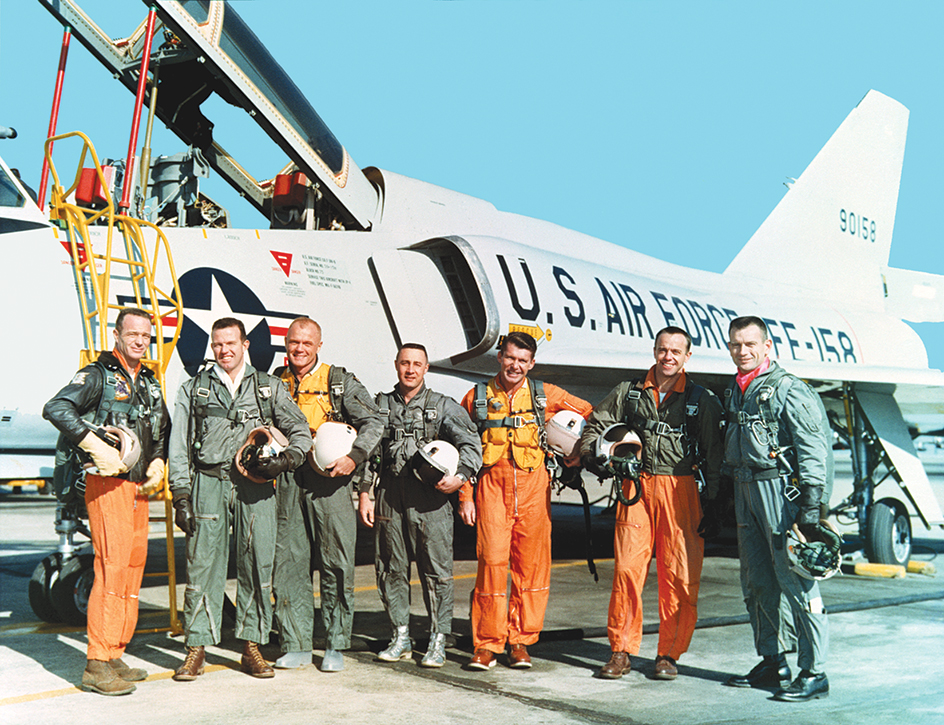Shepard, Alan Bartlett, Jr. (1923-1998), became the first American in space. On May 5, 1961, astronaut Shepard rocketed 117 miles (188 kilometers) into space from Cape Canaveral, Florida. He landed 15 minutes later, 302 miles (486 kilometers) out in the Atlantic Ocean. In 1971, Shepard commanded Apollo 14, the third landing on the moon. He became the fifth astronaut on the moon. While on the moon’s surface, Shepard conducted geological experiments.

Shepard made his historic first flight less than a month after Major Yuri Gagarin of the Soviet Union had orbited Earth in the world’s first human space trip. Unlike Gagarin’s spacecraft, Shepard’s ship could be manually controlled during the flight. During this flight, Shepard lay on a contour couch inside a capsule mounted on a Redstone rocket. The capsule, named Freedom 7, weighed about 3,000 pounds (1,360 kilograms). Freedom 7 reached a top speed of 5,180 miles (8,336 kilometers) per hour. While reentering Earth’s atmosphere, it endured forces 12 times as strong as the force of gravity on Earth’s surface.
Shepard was born on Nov. 18, 1923, in East Derry, New Hampshire. He graduated from the U.S. Naval Academy in 1944. After serving on a destroyer during World War II (1939-1945), he took flight training and became a Navy test pilot. In 1959, Shepard was chosen to be one of the first U.S. astronauts. He received the Distinguished Flying Cross and the Distinguished Service Medal of the National Aeronautics and Space Administration (NASA) for his first historic space flight. Shepard was grounded from 1963 to 1969 because of an ear disorder. In 1971, he became a rear admiral, the first astronaut promoted to this rank. In 1974, Shepard resigned from the astronaut program and the Navy. He later made a fortune in business and served on several corporate boards. He died on July 21, 1998.
See also Mercury .
